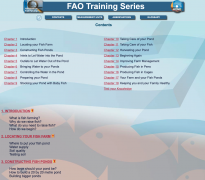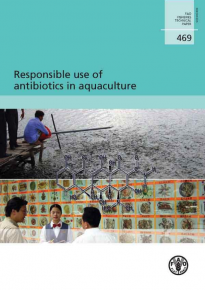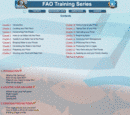Skills and Knowledge for Mortality During Grow Out
Capacity building in best management practices that will prevent or reduce mortality is important. Some key issues to cover in training related to mortality of fish in small-scale aquaculture include:
If you find any dead fish floating in your pond, take them out right away. Change some of the water in your pond.
To change some of the water in the pond, open the inlet and let in some new clean water. The old water will drain out of the pond at the overflow. Do this for 2 or 3 hours each day for several days until you see that your fish are well.
If the weather is too hot, feeding your fish too much or using too much fertiliser, may result in too little oxygen in the water for your fish to breathe.
If you see your fish coming to the surface gasping for air, give them less food and do not use any fertiliser for several weeks.
Put more oxygen into the water of your pond by changing some of the water for several days.
When you let new water into the pond, let it in quickly so that it will come with a splash and bring more air into the water.
Record Keeping
Record Keeping
Record keeping is also important. On-farm databases provide a variety of information regarding fish health and stock performance. Mortality records held in on-farm databases are indicators of fish health status and are of great interest for studying fish health, such as patterns of diseases. Mortality records can be used to help to evaluate various aspects of management and production in relation to the best practices within a business. These records can also provide early indications of specific problems and consequently develop early solutions to issues which may cause mortality.
More Information
More Information
Information on the proper use of antibiotics is provided in the FAO publication Responsible Use of Antibiotics in Aquaculture.
Good management practices related to recirculation aquaculture are described in the FAO publication A Guide to Recirculation Aquaculture.
Key Publications
A guide to small-scale aquaculture. |
| |
Responsible use of antibiotics in aquaculture This work focuses on antibiotics misuse and the concomitant threat of resistance development, considering this topic to be a public health concern that affects the population worldwide. | ||
A Guide to Recirculation Aquaculture This guide focuses on the techniques for the conversion from traditional farming methods to recirculated aquaculture and advises the farmer on the pitfalls to be avoided along the way. |
More Resources
More Resources
31 October 2023
01 January 2018














